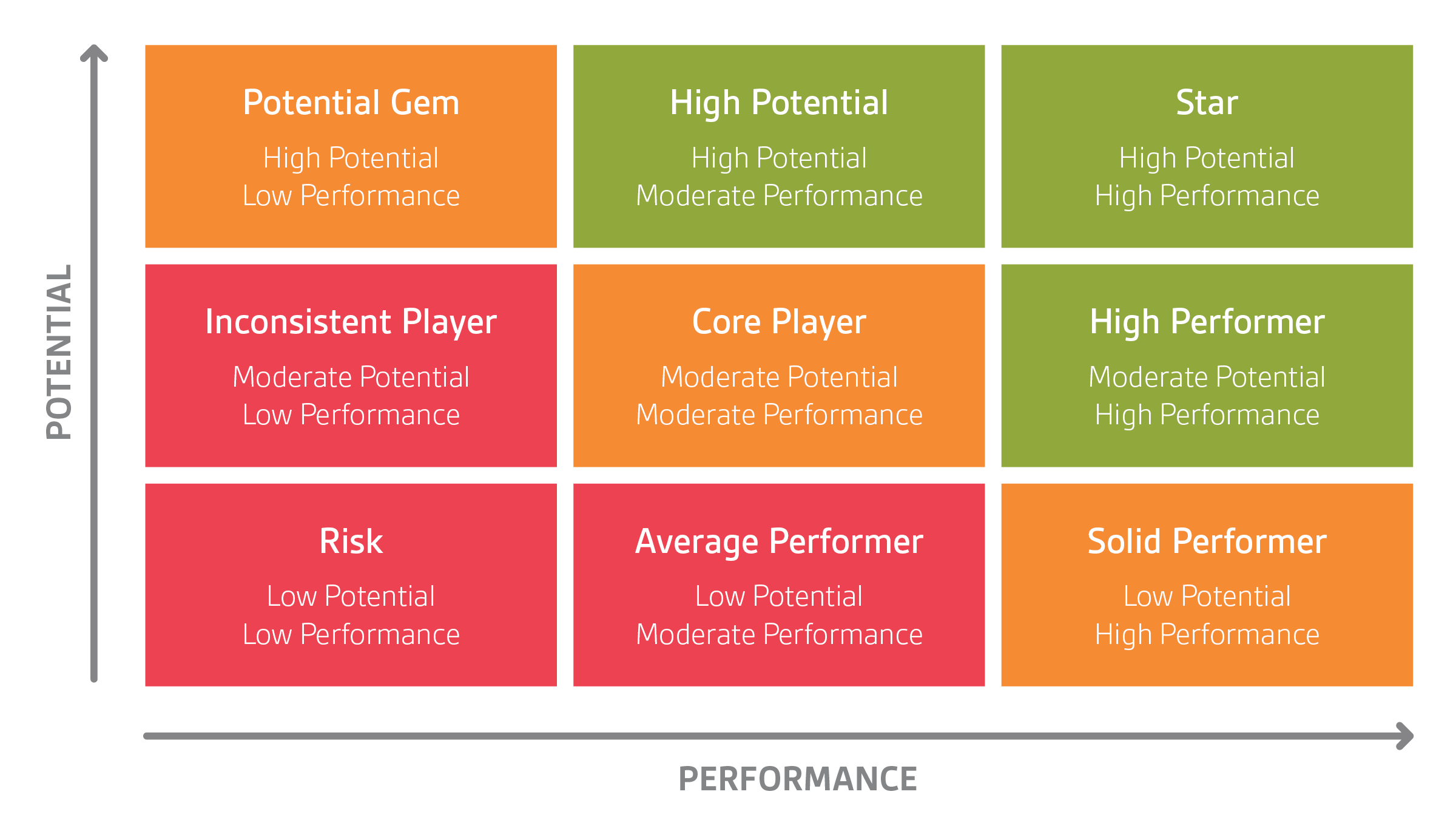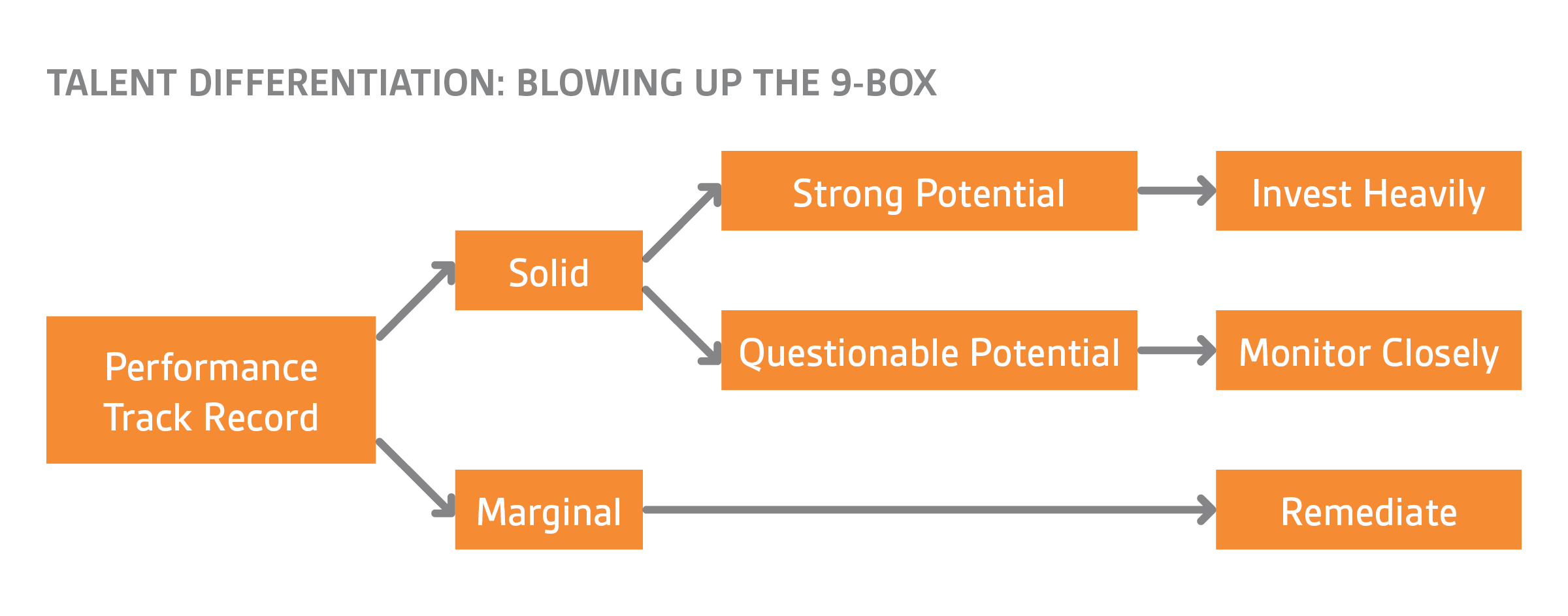For time immemorial (well, since the 1970s when it was developed by McKinsey & Co.), the 9-box grid has been the model used for succession planning. Although it’s still firmly on the curriculum of many MBA programs and entrenched in organizational talent models, it’s actually well beyond its expiry date. While there are alternatives, they’re currently underused as organizations can be reluctant to move away from this tried-and-tested approach. In this post, I’d like to propose a more efficient and effective alternative.
Why Move On from the 9-Box?
Despite the long history of the 9-box, we know this legacy approach doesn’t work for today’s organizations. Some of the key reasons I typically include here:
• We spend too much time discussing the wrong people and issues. Senior leaders working on talent management should spend the vast majority of their time discussing the next generation of leadership—not debating the placement of underperformers.
• Potential is extremely difficult to quantify. Measuring performance isn’t always easy, yet it is much more straightforward than measuring potential. Talent discussions focused on the 9-box frequently impute performance for potential. Consciously or unconsciously, leaders tend to gravitate toward the idea that past performance reflects future potential.
• Bias frequently creeps into the discussion. As leaders attempt to determine exact placement within the grid, their conversations become less unstructured and more guided by anecdotes. They are looking for any information possible to make fine distinctions among people. Often isolated incidents based on access to senior leadership (or other systemic bias) anchor the discussion in inaccurate ways.

Using the 9-box process, senior teams are spending time on talent segments, which do not drive business success.
Is There a Better Way?
Yes, absolutely! The particulars of the approach will vary from company to company, based on their level of maturity with talent management and succession planning. The graphic below shows a general model for succession planning that’s working well with many of our clients—from large, sophisticated multinationals to smaller, private companies just starting to think about succession planning. In this model, performance is considered “table stakes” for being considered as a possible successor. Next, we recommend using objective assessment data to determine leaders’ readiness to scale into roles with greater scope and complexity. Those who are most ready should be fast-tracked into developmental programs, special projects, or given rotational assignments to accelerate their succession readiness further. Those currently less ready to scale should have access to development opportunities with an expectation of increasing readiness over a longer timeline. By focusing on the talent most ready to scale, organizations can focus their attention and scarce development resources on those who are most likely to be ready sooner.

All While Reducing Bias
Much of the information that goes into traditional 9-box conversations are based on anecdotal evidence prone to bias. Our alternative approach relies heavily on objective assessment data to guide the conversation. While we believe that assessments should augment, not replace, your internal insights—objective assessment data is helpful in challenging preconceived notions about leadership and succession readiness. We often see conversations that integrate candid discussions of performance alongside objective assessment data and uncover previously overlooked talent (often from marginalized groups). Likewise, companies avoid making costly mistakes by anchoring on strong performers who fit the standard prototype of a leader yet have plateaued.







